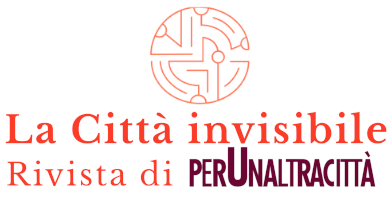For anyone interested in a left-wing analysis of the recent ‘NO’ in the Italian referendum, this is a translation of a text by Ornella de Zordo, published on the Florentine activist website ‘PerUn’altracittà’. De Zordo is a political activist and together with historian Paul Ginsborg, one of the founders of the Laboratory For Democracy movement (with which this website and group is associated). She is a lecturer at the University of Florence as well as an elected politician and translator of Lawrence, Austen and Mansfield.
William Wall
(Thanks to Fiorenzo Fantaccini for drawing it to my attention)
———————————
The Referendum is a social NO
Before the vote we said: this anomalous referendum, which was wanted by the government to achieve popular legitimacy never before before achieved (let alone after), started from the desire to tamper with the Italian Constitution, but went far beyond it.
 Behind an entirely political question is in fact the shadow – not so veiled – of those economic interests that have produced laws like the ‘Jobs Act’ or ‘Unblock Italy’, symbolically represented by the JP Morgan note, which asked openly for a change in direction of the authoritative constitutions of the Mediterranean countries which were intrinsically imbued with socialist values. And the need of the ruling classes emerged clearly to lift the system of governance that are the minimal basis of any so-called democracy: elections, consultations, distribution of power. The need for a collapse of the system to optimise speculative profits by speculating even more fiercely on resources, people, territories.
Behind an entirely political question is in fact the shadow – not so veiled – of those economic interests that have produced laws like the ‘Jobs Act’ or ‘Unblock Italy’, symbolically represented by the JP Morgan note, which asked openly for a change in direction of the authoritative constitutions of the Mediterranean countries which were intrinsically imbued with socialist values. And the need of the ruling classes emerged clearly to lift the system of governance that are the minimal basis of any so-called democracy: elections, consultations, distribution of power. The need for a collapse of the system to optimise speculative profits by speculating even more fiercely on resources, people, territories.
In the absence therefore of a truly constitutional moment, a ‘springtime of peoples’ like the one that gave birth to the [Italian constitutional] text of ’48, it was inevitable that the electoral process would more and more during campaign, characterise the vote as focused on the policies of this government, the system of banks, austerity sought by Europe, a system of which Renzi – despite his much-vaunted disobedience – was and still is (in its current disguised form) the perfect performer.
It cannot, therefore, be surprising that the avalanche that buried No (for now), that buried Renzi’s arrogance, came from young people, from the metropolitan suburbs, from the South. The people who voted No were temporary workers, the unemployed, the poor and the impoverished, who paid hard dues in terms of social inequality and loss of rights. They who voted No were workers who currently ‘continue’ the campaign in a rejection of collective contracts, tears and blood like the one signed for metalworkers, environmental or state actors.
It doesn’t trouble the analysts and pundits to count and divide the alleged party affiliations of that 60%; but their schemata are surpassed by the reality of the revolt that is not represented by political parties, even those of an institutional left that has long lost its proper role and function by giving way to right-wing populism.
They set all minds at rest. But from now on we will work to strengthen, expand, enhance the popular front that has not been shaken by the instability of alleged menaces or enticed by false promises of well-being, that on the 4th December repulsed a frontal attack, but that still is not a political entity able to polarise the many forms of resistance and existing conflicts in the field. To all of us it remains to strengthen that front, so that it becomes a conscious subject of an alternative politics.
Ornella de Zordo

